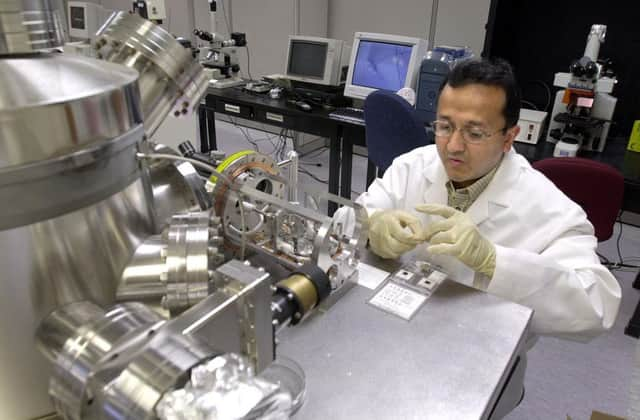A chance to Share in vital medical research


Since 2012, the Scottish Health Research Register (Share) has been inviting everyone, aged 16 or over, in Scotland to indicate whether they would be prepared to take part in biomedical studies to develop new treatments.
Individuals registering with Share, part of the NHS, give permission for their medical data, from various NHS computer records in hospitals and GP surgeries, to be checked to see whether they might be suitable to participate in research projects. If they are, Share staff will then invite these individuals to take part in the study. But there are no obligations.
Advertisement
Hide AdAdvertisement
Hide AdThe health information used by Share is usually coded so that it can be routinely used without any identifying information about a patient. However, if necessary and in exceptional circumstance, this secure code can be retrieved so that the person can be identified.
More than 55,000 people have already signed up to the register in Scotland which aims to recruit 100,000 people before the end of 2015.
One of the reasons Share is very much an improvement on the previous system is that patients have consented, beforehand, to be invited directly by NHS staff on to a medical study. This has a number of advantages.
For example, in the past, when a healthcare professional involved in the care of patients wanted to invite them on to a research project, he or she was never sure whether even inviting them would cause distress or upset.
Moreover, it is illegal for a researcher not involved in the care of patients to access any of their identifying details without their consent making it impossible for him or her to invite these patients onto a study project. In the past, this meant the researcher having to ask, instead, healthcare professionals, who were involved in the care of the patients, whether they could invite them to participate in the study which took up a lot of these carers’ precious time.
Share participants can also decide whether any of their leftover blood samples taken for standard clinical tests by their GP or in hospital can be stored indefinitely in a biological sample bank for future use in medical research.
Before registering with Share or accepting to donate surplus blood it is, however, crucial for potential participants to read the small print.
For instance, it is important to be aware that scientists will be able to use, in a coded form, a patient’s blood samples and NHS data for research which could take place both in and outside the UK with different partners such as pharmaceutical companies and could include genetic studies. This may even involve the deciphering of the patient’s entire genetic code.
Advertisement
Hide AdAdvertisement
Hide AdFurthermore, it is essential to remember that appropriate consent is not a one-off decision which is given in perpetuity but a continual process that lasts the lifetime of an individual. This is addressed, to some extent, by Share in that a person can leave the register at any time without having to give a reason at which point his or her samples will be destroyed and data removed from the register.
Obtaining appropriate consent from participants, however, may mean that still further clarifications are provided by Share. For example, at the moment it is indicated that blood samples can be stored indefinitely for future research. But does this then imply that the cells in the blood of the patient could be stored for hundreds of years in the future and then used in research that could be seen as offensive to the original patient? For example, could the stored cells be used to create new reproductive cells for the creation of new kinds of persons?
A person registering with Share should also be made aware that there are some situations where their anonymity could be lifted even when assurances are given that this would not happen. For instance, a judge would be able to let a police investigation override guarantees of confidentiality by the researchers.
But overall the development of Share should very much be welcomed in seeking to develop appropriate procedures for biomedical research which could eventually save lives. It just needs to make sure that a robust system of continuous consent is established including taking persons off the register when their lives eventually come to an end.
• Dr Calum MacKellar, director of research of the Scottish Council on Human Bioethics, 15 North Bank Street, Edinburgh EH1 2LS. www.schb.org.uk
• You can register with Share by going to: www.registerforShare.org